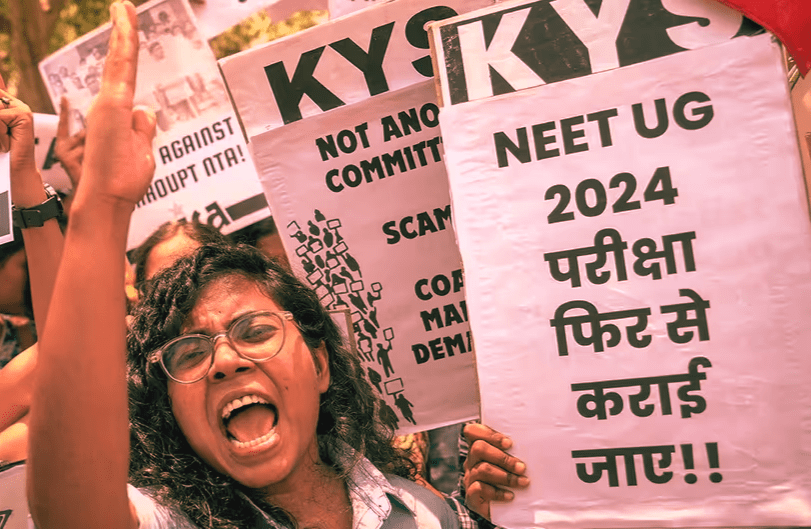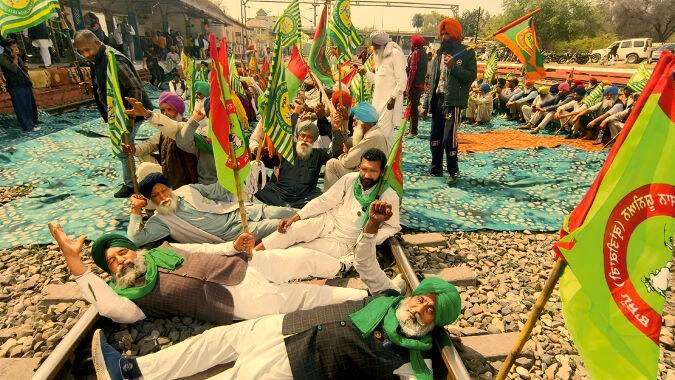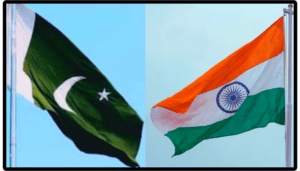The people of the country want reforms, is that why could not ‘cross 400’?
The latest survey shows that the public wants reform in the socio-political sphere, just with a little caution. Encouragingly, the majority felt free to express their opinion

The cry for alter is resounding boisterously over India and requesting people-centric changes and plans in numerous segments from instruction to horticulture. But whereas respondents to the Admirable 2024 India Nowadays Nation Temperament Overview welcome the changes, they are especially cautious around certain changes like three unused criminal laws and advocate more grounded checks and equalizations. The specter of paper spills that have put a address check on numerous enrollment and entrance exams is floating badly.
Mood of the nation The study appears that the most broad perception—28.2 per cent—is that the central government is to begin with and preeminent capable for this year’s cases of paper spills taken after by the specialists who were entrusted with conducting these examinations (21.2 per cent). As numerous as 18.8 per cent of the respondents accept that the state governments are mindful whereas 13.3 per cent fault the individuals included in the handle of planning and disseminating the address papers. As it were 7.3 per cent suspect the part of a few organized groups behind the paper spill.
One thing is aggravating. And that is that less than half of the respondents in the final eight nation temperament studies accept that India has ended up more secure for ladies than ever some time recently. In truth, fair 42.3 percent said so this time around, down marginally from the 43.1 percent of respondents in the February 2023 survey.
It is imperative to specify that the most recent study was conducted by R.G. The assess was ahead of the national talk about on women’s security that emitted after the savage assault and kill of a 31-year-old learner specialist at a restorative college and clinic. Another 37.9 per cent of respondents feel that India has gotten to be less secure for ladies, whereas 15.7 per cent say that things stay as they are which is prove of the holding on challenges in terms of guaranteeing sex affectability and justice.
Three unused criminal laws—the Indian Equity Code, the Indian Respectful Security Code and the Indian Prove Act, which on July 1 supplanted the British-era Indian Correctional Code (IPC), Code of Criminal Method (CRPC) and the Indian Prove Act—are invited by numerous Looks like an advancement but moreover a few caveats. Near to one-third—31.1 per cent—welcomed them and requested more controls whereas 22 per cent accepted they were viable as is. In any case, 22.4 per cent communicated concern that the unused laws were perilous since they gave as well much control to the police and official, and such fears were most noteworthy (36 per cent) in the South….
The Agnipath plot too gotten blended responses. Given the reality that a work in the equipped strengths is a matter of extraordinary honor indeed if it is for a restricted period of time and firefighters do get a chance to stay in it, near to one-fourth—27 per cent—of respondents think that this arrange can proceed without any changes. But about as many—26.8 per cent—want the conspire rejected inside and out whereas as expansive as 38.3 per cent need ‘some improvements’, reflecting unavoidable skepticism around the scheme.
Amid progressing meetings on the usage of the One Country, One Race (ONOP), open conclusion shows up to be progressively taking a strong shape in its favour—72.4 per cent of respondents are in favor of it which is the temperament of the nation in February More than 65.9 per cent of the study. But the rate of those who are against the ONOP has too increased—from 21.3 per cent in February to the current 25.2 per cent. Fair 2.5 per cent of respondents stay unconscious of the affect of the concept or have not made up their minds around the masters and cons.

Of course, the Decision Commission’s choice to hold the up and coming decisions in Haryana and Maharashtra independently, particularly when they were held side by side on the final three events, does raise the address of whether down to business legislative issues will triumph over the ONOP that… It is said to be less costly and time-saving in a government majority rule government like ours.
Across the nation, the caste census commotion is moreover picking up energy, particularly when 73.8 per cent of respondents are in favor of it compared to February’s 59.2 per cent. The number of rivals has declined to 24 per cent from 27.8 per cent in the past overview. The suggestion is that by connecting the caste census with the ceaselessly evading decennial national census, a few costs can be diminished and solid caste-wise information can be accumulated for arrangement making.
Given the differing qualities of the nation, the greater challenge is to execute the Uniform Respectful Code (UCC). That’s indeed as 76.4 per cent of respondents to the country’s temperament overview favor it, the most elevated in eight past studies since January 2021. Resistance to the UCC has moreover fallen to 16.1 per cent, the least in the final three nation disposition studies, in spite of the fact that still higher than the January 2022 record moo of 13.7 per cent.
But for the to begin with time since January 2022, a larger part (50.3 per cent) do not think vote based system is in threat, whereas those who do so have fallen to 41.9 per cent, the least in the temperament overview of the final eight nations. There is distant more clarity approximately the current state of popular government in the nation, as prove by the truth that after 2021, the most reduced fair 7.8 per cent of respondents are uncertain or undecided almost it.
Equally empowering is that most respondents (58.9 per cent) feel free to express their conclusions almost both legislative issues and religion. In the past four overviews, the figure had fizzled to cross the 50 per cent stamp. Another 11.6 percent feel free to express their conclusions approximately legislative issues, but not free when it comes to religion. Another 7.6 per cent of respondents feel free to express their suppositions almost religion but not around politics.
But there are still 16.5 per cent of respondents—the most in the final five surveys—who don’t feel free in either case. The remaining fair 5.4 per cent, the least in the final five overviews, are dubious or undecided.
Share this content:













Post Comment